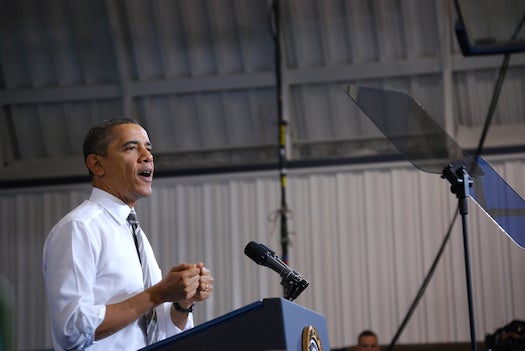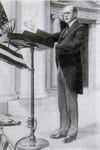7 Ways We Thought The Radio Would Transform Presidential Debates
Was the invention of the radio the most important political event of the 20th century?


“This year radio will elect a President.” 1928
Nearly everyone who watched last night’s presidential debate did so on a television or computer screen, platforms on which style often trumps substance. Barack Obama and Mitt Romney were judged on their arguments, yes, but also on their body language and poise. This theatrical reality seems intimately linked with the fact that presidential campaigns are largely conducted through the TV.
But as this June 1928 PopSci article shows, it was the radio that first brought political speeches into the living room and utterly changed the way America elected its leaders. “In 1924 a really comprehensive radio campaign was impossible,” writer Earl Reeves said. So when Republican Herbert Hoover and Democrat Al Smith competed for the White House in 1928, they were pioneers of a new campaign style. Here are the seven ways we predicted the radio would change politics forever:
1. “Increase the ‘silent vote.’ “ “Thousands who had never attended a political rally” will be “drawn in through the radio appeal.”
2. “Compel facts and reasoning instead of oratorical flag-waving.” “Speech making … will have to be unemotional, tightly reasoned, simple and direct in wording. Talking directly to a family at home, unaffected by the ballyhoo of the mass meeting, the candidate [will have to] appeal on his merits or not at all.”
3. “Give people a wider understanding of concrete governmental problems.”
4. “Increase the women’s vote.” “Now the radio set has been brought into the living room” and thus, “accepted by the women.”
5. “Develop new campaign leaders who have the ‘radio appeal.’ “ “Each national committee will have … a radio campaign manager. He will have to plot out the programs of big radio events and stretch the inadequate dollar to reach the largest possible ‘audiences.’ “
6. “Break up party lines in some sections.”
7. “And, by enabling speakers to talk directly to millions, make it possible for a man to be bigger than his party, as in the nation’s early decades.”

“President Coolidge reaching in a single speech more voters than Roosevelt addressed in his entire career.”
Read the full story in our June 1928 issue: Radio Brings Politics Into Your Home.